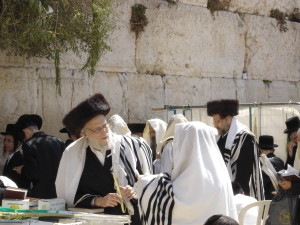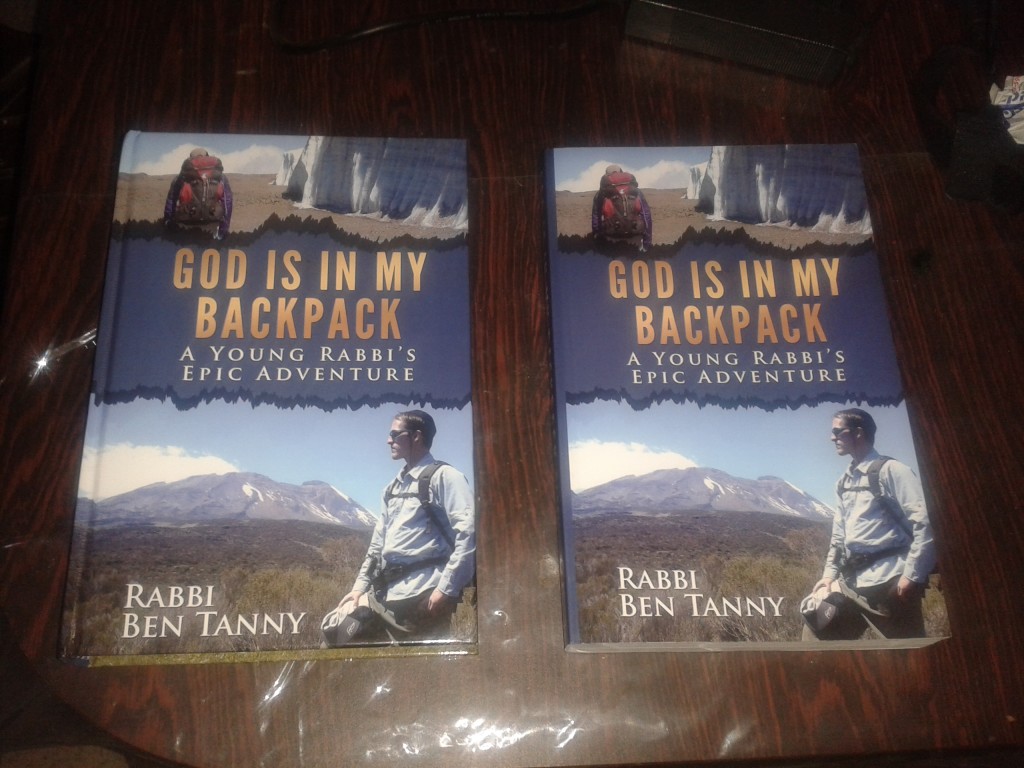Dear Friends,
Usually, I don’t get involved with writing about political situations but with everything going on I thought I should share a few thoughts…
One of the most frustrating things in life is trying to reason logic with someone who is emotionally attached to something, some person, or some idea. The more you try to convince the person, the more you both become angry. Like an individual involved in a cult, in an abusive relationship, or a failing business – you can talk yourself blue in the face and it will get you nowhere.
Anti-Semitism is not logical. The perpetrator may try to use some warped logic to justify their means but it still stems from an emotional hatred. During The Black Death between 1348 and 1350, there were many violent attacks on Jewish communities throughout Europe. As the plague swept across Europe, killing off more than half the population, the Jews were the scapegoats. They were accused of poisoning the wells which caused the disease. To give you one example, 900 Jews were burnt alive in Strasbourg on February 14, 1349. The plague had not yet affected the city, and killing off the Jews was seen as a pre-emptive move to prevent the plague from coming.
It seems a couple of hundred years later, people were still convinced that the Jews were at fault for the plague. The 16th century German religious reformer, Martin Luther wrote: “they are often accused of poisoning wells, stealing children and mutilating them.” How many Jews have been killed in pogroms because of blood libels, which falsely accused Jews for using Christian blood in their passover Matzah, when the Christians themselves had killed a child and blamed the Jews.
Jews have been blamed for killing Jesus, starting both world wars and losing them, the rise and fall of communism, 9-11, America’s financial success and financial problems, and just about anything that happens in the Middle East.
There is a story of two old ladies sitting on a park bench having an argument. One points to a gray thing moving along the ground and says: “Look at the size of that pigeon.” The other lady counters, “that’s no pigeon, that’s a giant rat!” They argue for a while until the thing flies up into the air and at which point lady number two remarks: “Wow that is the first time I’ve ever seen a flying rat!” - If you want to believe something is a rat, then no matter what happens in life you will keep your belief. Anti-semites have their beliefs about Jews and if they want to hold on to them, then no matter what good Israel does, the negative beliefs will remain. For some, they are so steeped in blame and hatred that even when blatantly good stares them in the face they will see bad.
What scares me, is how far some people can go in order to hold on to a corrupt belief. It seems even when Jews do a nice simple thing to help out in their community the world’s anti-Semites have a way of darkening it. Here is what Major Robert H. Williams, in ‘FECP and the Minority Machine’, page 10, has to say about Jews doing good:“B’nai B’rith, the secret Jewish fraternity, was organized in 1843, awakening world Jewish aspirations, or Zionism, and its name, meaning “Sons of the Covenant,” suggests that the 12 men who organized the fraternity aimed at bringing about the fulfillment of “the Covenant,” or the supposed Messianic promise of ruler-ship over all peoples. To rule all peoples, it is first necessary to bring them together in a world federation or world government – which is the avowed aim of both Communists and Zionists.”
Here is what I know about B’nai B’rith’s inception: The twelve men who headed the organisation were appalled by the deplorable condition of immigrant Jews to the United States. The newcomers to the country were often living in utmost poverty, and these twelve men wanted to help. They set up an organisation which initially was about ”Visiting and attending the sick” and “protecting and assisting the widow and the orphan.”
My grandfather was president at one point of B’nai B’rith Montreal Canada. Their biggest project at the time was sending thousands of food baskets to impoverished families. I was part of B’nai B’rith Youth movement and we never conspired to inject the world with communist views. We spent our free time packing food baskets, cheering up elderly people and creating a better community environment.
The Jewish people have undergone two thousand years of persecution and expulsion from almost every country they lived in. One website http://biblebelievers.org.au/
Throughout history there have been innumerable pogroms across Europe and the Middle East. Jewish communities were decimated, the people murdered, raped, and their homes and businesses ransacked. Those who survive often did so by fleeing with whatever they carried in their pockets.
Significant pogroms in the Russian Empire included the Odessa pogroms, Warsaw pogrom (1881), Kishinev pogrom (1903), Kiev Pogrom (1905), and Białystok pogrom (1906), and, after the 1917 Russian Revolution, the Lwów pogrom (1918) and Kiev Pogroms (1919). This does not include the countless smaller pogroms that took place on a regular basis.
The UN has passed resolutions condemning just about everything Israel has ever done. During the Gulf War while 39 Scud missiles landed on Israel threatening biological warfare, America asked Israel not to get involved. NOT GET INVOLVED? If your family was being threatened to be killed and someone asked you not to get involved I hope you would never listen to that someone again…yet we do.
Where was the world when 6 million of our brothers and sisters were murdered by the Nazis? An estimated 67% of the Jewish European population which included up to 90% in some countries. This is Genocide. The Palestinians and the world claim “genocide” while the Palestinian population has grown in leaps and bounds. Do you want to reason with a people who deny the holocaust having happened yet say they wished it did happen, and given the opportunity would make it happen? Does any of this seem logical?
So yes we Jews are stupid if we think the world cares; granted there are some Christians and individuals who love us, thank you. Most have demonstrated for the last 2,000 years that they don’t really give a hoot, and that their dislike for the Jewish people will remain regardless.
Thus said, I don’t believe the Islamic world particularly hate us. I believe they hate everyone who is not exactly like themselves – Christians, Buddhist, Hindus, and even Shiite, Sunni, western Culture, America, anything really. If Israel was gone tomorrow, they would have a civil war amongst themselves. All it takes is an artist to draw a cartoon, or an idiot, to make some pathetic movie depicting the Prophet, and the Islamic world will be up in arms, rioting, protesting and killing.
There will never be peace in the Middle East – Iraq and Iran in the Gulf war, the Egyptian political instability, The Syrian Civil War, the Taliban in Afghanistan, and Hamas, Fatah, PLO and Jihad all fighting each other. They like to fight, full stop. It is part of their culture.
We Jews on the other hand don’t like fighting. We want to live in peace and only fight to protect ourselves. If Israel laid down its weapons, tomorrow there would be no Israel. If Hamas on the other hand laid down their weapons there would be peace. But Hamas then would lose its identity which is something they are not prepared to do.
If you meet anyone who wants to talk logic, perhaps start with this. “Can I ask you a simple question; Do you think Israel has the capabilities to blow Gaza off the map. To kill everyone there, and turn it into a pile of rubble?” The answer is “yes.”
“Now do you think Hamas, Iran, Jihad and all the other crazy groups have the capability to blow Israel to pieces?” The answer is “no.”
Now let me ask you another question. “Do you think that, if Hamas or Iran could blow Israel off the map would they?” The answer is “yes,” as they have expressed the intent openly many times.
Thus, when Israel kills a Palestinian child, it is a mistake. There is no malicious intent. Israel gains nothing by killing an innocent civilian. If they wanted to, they could kill them all. Hamas on the other hand specifically targets civilians, with 1,500 killed in buses and cafes in the past Intifada, and constantly by lobbing rockets into civilian populations. They are happy to blow themselves up in martyrdom, so why would they care to take a few of their own with them?
But this is all silly logic for intelligent people to reason with… to negotiate with… ‘insanity is trying to do the same thing over and over and expecting a different result.’ So we are insane as well.
If we care about world opinion we are doomed…because there are two types of people in the world: those who like us unconditionally, and those who unconditionally condemn and hate us. So who are we trying to appease. The world has condemned everything Israel does. During the Sydney 2000 Olympics Countries build fences to protect their athletes from terrorists along with armed security just in case. But when Israel puts up a fence to protect its civilians from terrorists who say and demonstrate their intent on causing harm, the world screams. So let them scream.
I remember one of my first self-defence lectures I went to when I was 14 years old. The instructor said: “Better to be tried by 12 (a jury) than to be carried by 6 (in a coffin).”
Let the UN, pass more resolutions, let the Arabs in every city around the globe protest, let the media broadcast its lies, let the Arab world kill themselves while the world ignores it, let America and every other country in the world condemn, and let the Chamberlains of the world wave a pathetic piece of paper signed by Hitler…but don’t let a single other Israeli civilian die by a terrorist or allow a young Israeli soldier to be killed unnecessarily.
Yes we trade one soldier for a thousand terrorists because life to us is valuable. And it should be too valuable to waste on politics. Too valuable to fire rubber bullets in the face of live ammunition. Too valuable to risk ground force when air strikes would do.
The sooner we wake up to the fact that logic and the plight of the Jews do not mix, the better off we will be. As frustrating and infuriating as it may be, many in the world are emotionally attached to their beliefs and no amount of reasoning will ever work.
Israel exists on miracles. Thirty-nine scuds can land on it without injuring a single person and Israel can take out an Egyptian air force without the loss of a life.
When King David went to battle, half the army would pray while the other half fought. Both sides employed tactics to the best of their abilities. For those of us not actively fighting for the protection of Israel we must pray with all our hearts to our Father in heaven that He protect them and us. And for those who are fighting, they must fight using everything available to them by air, land, and water. We receive miracles but we are not allowed to rely on them, yet at the same time we must recognise that our survival and victory balances on miracles.
May we see the coming of the final redemption as the prophet Isaiah says, ‘They will beat their swords into ploughshares, and their spears into pruning hooks. Nations will not take up the sword against other nations, and they will no longer train for war.’
Read More

 How to Keep Kosher While Traveling
Finding Food: There are three types of places you may find yourself:
Developed countries like: Canada, United States, and Australia. In most developed Western countries you can buy almost anything in a supermarket aside from meat and dairy products. A vegetarian and vegan self-caterer would have no...
How to Keep Kosher While Traveling
Finding Food: There are three types of places you may find yourself:
Developed countries like: Canada, United States, and Australia. In most developed Western countries you can buy almost anything in a supermarket aside from meat and dairy products. A vegetarian and vegan self-caterer would have no...
 How to Keep Shabbat Anywhere
Toilet Paper: Remember to tear toilet paper. (Especially in India!!!)
Lights: Leave the bathroom light on. For high-tech places where you use your entry card to keep the lights on, I just leave the room before Shabbat and forget my key and leave the lights and air-conditioning on. I tell them at the front desk...
How to Keep Shabbat Anywhere
Toilet Paper: Remember to tear toilet paper. (Especially in India!!!)
Lights: Leave the bathroom light on. For high-tech places where you use your entry card to keep the lights on, I just leave the room before Shabbat and forget my key and leave the lights and air-conditioning on. I tell them at the front desk...
 Camping on Shabbat
How to: Build an Eruv, Bake Bread, go to the Toilet, and More
A Practical Guide to Camping Over Shabbat.
Camping on Shabbat requires extra preparation and effort, but is not that difficult once you get the hang of it – and Shabbat can be a highly rewarding experience when spent in nature. This book will show you how...
Camping on Shabbat
How to: Build an Eruv, Bake Bread, go to the Toilet, and More
A Practical Guide to Camping Over Shabbat.
Camping on Shabbat requires extra preparation and effort, but is not that difficult once you get the hang of it – and Shabbat can be a highly rewarding experience when spent in nature. This book will show you how...
 “The jungles of Borneo, Mt Kilimanjaro in Africa, a Thai boxing camp in Thailand… this guy manages to keep kosher and observe Shabbat.”
I have been traveling since 1997 and never really stopped. My house is my backpack where I have everything I need; clothing, a tooth brush, juggling balls, and a pair of small Tefillin.
People...
“The jungles of Borneo, Mt Kilimanjaro in Africa, a Thai boxing camp in Thailand… this guy manages to keep kosher and observe Shabbat.”
I have been traveling since 1997 and never really stopped. My house is my backpack where I have everything I need; clothing, a tooth brush, juggling balls, and a pair of small Tefillin.
People...









